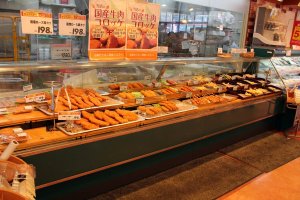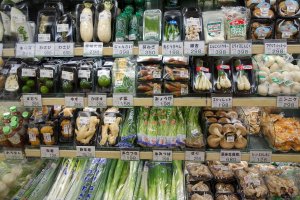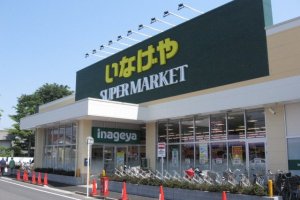Supermarkets don't only provide the essentials we need for day-to-day living, but they also offer a window into the cuisine, culture, and customs of a country. If you're visiting Japan, this guide provides some information on Japan's supermarkets, including details on various supermarket chains, what to expect from a Japanese supermarket, and more.
Japanese supermarket chains
There are several different supermarket chains across Japan. Some are found almost everywhere, and others are more region-specific. Some chains you can expect to find include:
- Maruetsu
- Izumiya
- Seiyu
- Daiei
- Ito-Yokado
- ÆON
- Tobu Store
- Inageya

What to expect at a Japanese supermarket
There are certain elements of supermarkets that almost seem universal, and others that are unique to different countries. Some things you can expect at Japanese supermarkets include:
Plenty of incredible ready-made meals
Japan's convenience stores are lauded for their ready-made meals, but don't overlook supermarkets for those, either! You'll find an impressive array of bento at most supermarkets, with everything from sushi to hamburger steaks, freshly fried tempura to katsu, and plenty more.
Insider tip: if you visit a supermarket later in the evening, many bento are marked down significantly so you can snag yourself some cheap eats.

No massive shopping carts
Doing a large weekly or fortnightly shop in many parts of the world is common, and the shopping carts tend to accommodate that. In Japan, it's more typical that people shop every few days, and thus the carts are significantly smaller.

Rewards programs are common
If you plan to be in Japan longer-term, be sure to check whether your supermarket of choice offers a rewards program. Most do, and they allow you to accrue points which can then be used to offset the cost of future purchases. When it comes to paying in Japanese yen though, a variety of options exist.

An overabundance of plastic packaging
Along with all the good things, there are some downsides, too. You'll find that a significant majority of fresh food items come wrapped in plastic or in styrofoam containers. With more pressure on retailers to do the right thing by the environment, this is changing - but it's slow progress.

International Supermarket chains
You'll also find several international supermarket chains in Japan, and they stock a range of products from all across the globe. This can be particularly handy for travelers or expats missing a certain taste of home, or even for finding items that fit certain dietary requirements such as gluten-free, vegan, or halal products. Some international supermarket chains and stores include:
- Kaldi Coffee Farm
- Seijo Ishii
- Jupiter Import Foods
- Kinokuniya International (Tokyo)
- National Azabu (Tokyo)
- Costco





























